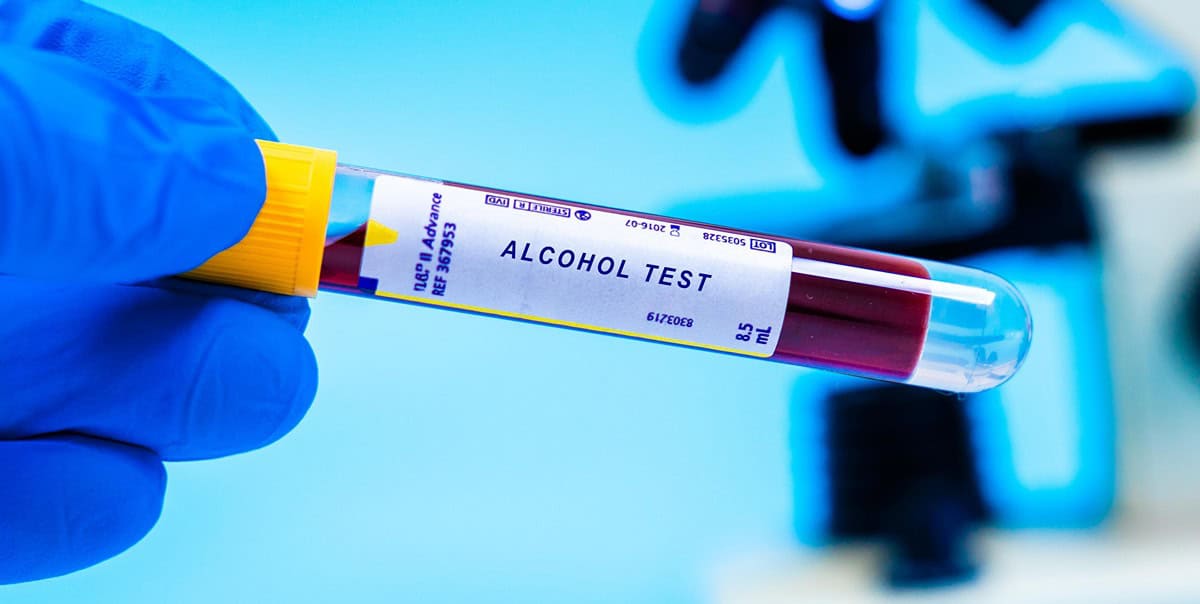Restoring gun rights in Arizona can be a challenging and complex process, especially for individuals who have been convicted of a felony offense.
In Arizona, individuals who have been convicted of a felony or a domestic violence offense lose their firearm rights and must go through a rigorous legal process to regain them.
After the completion of probation or other sentencing requirements, individuals may be eligible to petition the court for the restoration of their firearm rights. It is important to note that in some cases, certain rights cannot be restored, but with the assistance of a knowledgeable attorney, individuals may have a chance to have their civil right to bear arms reinstated.
If you are facing this challenge, consider reaching out to Arja Shah for a free initial consultation to discuss your options.
This article will cover the following topics:
- How a Misdemeanor vs. Felony Conviction Impacts Your Gun Rights
- What Offenses Lead to Permanent Disqualification of Firearm Rights?
- Process for the Restoration of Firearm Rights
- Frequently Asked Questions
- Contact Defense Attorney Arja Shah

How a Misdemeanor vs. Felony Conviction Impacts Your Gun Rights
Gun rights in Arizona are significantly affected by the type and severity of a criminal conviction. Knowing the distinctions between misdemeanor and felony convictions is important for anyone seeking to restore their Second Amendment rights.
Misdemeanor Convictions and Gun Rights
A misdemeanor conviction can lead to varying levels of firearm restrictions. One of the most impactful misdemeanors is a conviction involving domestic violence. According to federal law (18 U.S.C. § 922(g)(9)), individuals convicted of a misdemeanor crime of domestic violence are prohibited from possessing firearms.
Arizona law under ARS 13-3601 defines domestic violence misdemeanors to include offenses such as assault, criminal damage, and threatening or intimidating a household member.
The federal prohibition applies indefinitely unless the conviction is expunged or set aside, and gun rights are specifically restored.
Most other misdemeanor convictions do not result in the automatic loss of firearm rights. However, probation terms or specific court orders may temporarily restrict firearm possession.
Felony Convictions and Gun Rights
In contrast to misdemeanors, felony convictions generally result in the automatic loss of firearm rights in Arizona, as outlined in ARS 13-904.
The prohibition remains even after the individual completes their sentence unless their rights are explicitly restored by a court.
Restoring gun rights after a felony conviction involves meeting specific eligibility requirements. An individual must have completed all aspects of their sentence, including probation, parole, and payment of fines and restitution.
For non-dangerous felonies classified as Class 4, 5, or 6, a two-year waiting period applies after the individual has fulfilled the conditions of their sentence, according to ARS 13-905.
For Class 2 and Class 3 felonies, the waiting period extends to five years. Individuals seeking to restore their firearm rights after a felony must petition the court that originally sentenced them.
However, some felony convictions lead to permanent disqualification from possessing firearms.
Individuals convicted of dangerous offenses, sexual crimes, or crimes involving minors are permanently prohibited from owning or possessing firearms.
What Offenses Lead to Permanent Disqualification of Firearm Rights?
Certain offenses in Arizona result in a permanent disqualification of firearm rights. These include:
- Dangerous Offenses: Under ARS 13-704, dangerous offenses involve the intentional or knowing use of a deadly weapon or dangerous instrument, or the intentional or knowing infliction of serious physical injury. Such offenses lead to permanent disqualification.
- Serious Offenses: As defined in ARS 13-706(F)(1), serious offenses include first-degree murder, second-degree murder, sexual assault, kidnapping, arson of an occupied structure, child molestation, and armed robbery. Convictions for any of these result in a lifetime ban on firearm rights.
- Felonies Involving Minors: Offenses involving crimes against children under the age of 15, such as sexual exploitation or molestation, result in a permanent loss of firearm rights.
- Federal Felony Convictions: Federal felony convictions for violent crimes, weapons trafficking, or drug offenses often result in a lifetime prohibition of firearm possession.
- Repeat Felony Offenders: Individuals with multiple felony convictions may face permanent disqualification, particularly if one of their offenses is categorized as dangerous or serious.
Even if civil rights are restored, firearm rights are not automatically reinstated if a person has been convicted of any of these offenses. Restoration may require a presidential pardon or may be permanently denied due to the nature of the crime.

Process for the Restoration of Firearm Rights
Restoring firearm rights in Arizona following a felony conviction is a detailed legal process that requires meeting specific eligibility criteria.
In some cases, obtaining a set-aside conviction is a preliminary requirement for the restoration of firearm rights. Here’s a step-by-step guide to the process:
Step 1: Confirm Eligibility
The first step involves ensuring eligibility based on the type of felony conviction and compliance with the required waiting periods.
For Class 4, 5, or 6 non-dangerous felonies, an individual becomes eligible to apply for restoration two years after completing all aspects of their sentence, including probation or parole. For Class 2 or 3 non-dangerous felonies, the waiting period is five years.
For serious or dangerous offenses, such as those involving the use of a deadly weapon or serious physical injury, restoration of firearm rights is generally prohibited.
Step 2: Obtain a Set-Aside Conviction
In felony cases obtaining a set-aside conviction under ARS 13-905 is a preliminary requirement for restoring firearm rights. The set-aside process involves filing a petition in the court that issued the original conviction. Once granted, the court sets aside the conviction, releasing the individual from penalties and disabilities resulting from the conviction. However, the conviction remains on record and does not automatically restore firearm rights, which requires a separate petition.
Step 3: Prepare the Petition
After confirming eligibility and, if necessary, obtaining a set-aside conviction, the individual must prepare a petition to restore firearm rights. This involves accurately completing the petition form obtained from the court that sentenced the individual. Supporting documentation should include proof of sentence completion, such as probation or parole discharge papers, and evidence demonstrating rehabilitation and good character, like letters of recommendation and community service records. It is also important to show that all fines, fees, and restitution have been paid.
Step 4: File the Petition
The petition must be filed in the court that issued the original conviction. If the individual has since moved, it should be filed in the court of current residence. The filing process usually requires payment of a filing fee.
Step 5: Notify Relevant Parties
After filing the petition, the individual must notify the prosecuting attorney’s office that handled the original case. If victims were involved in the crime, they should be notified if they have registered to receive updates on post-conviction proceedings.
Step 6: Attend the Hearing
A court hearing may be scheduled to review the petition. During the hearing, the petitioner should be prepared to present evidence and arguments demonstrating rehabilitation and good character. This may include witnesses, documentation, and a personal statement explaining why restoring firearm rights is in the interest of justice. The petitioner should also address any objections raised by the prosecutor or victims.
Step 7: Await the Court’s Decision
After reviewing the petition, the court will decide whether to grant or deny the request. If granted, the court will issue an order restoring the individual’s firearm rights. If denied, the individual may appeal the decision or re-petition after addressing the reasons for denial.
Frequently Asked Questions
Can I apply to restore my firearm rights if I have multiple felony convictions?
Yes, you can apply if you meet eligibility criteria for each conviction. However, the court will carefully consider the nature of all felonies and your rehabilitation progress before deciding. Dangerous felony convictions typically lead to permanent disqualification.
Will a conviction expunged in another state prevent me from restoring firearm rights in Arizona?
Not necessarily. If your conviction was fully expunged and no longer appears on your record, it may not impact your firearm rights restoration application in Arizona.
Do DUI convictions impact my ability to restore firearm rights?
Yes, if you were convicted of aggravated DUI under ARS 28-1383, this can prevent firearm rights restoration. For standard DUI offenses, eligibility depends on meeting other criteria and waiting periods.
Can I restore firearm rights if I have a misdemeanor domestic violence conviction?
No. Federal law prohibits firearm possession by individuals convicted of a misdemeanor crime of domestic violence. This ban remains unless the conviction is set aside or expunged.
Does a restoration of civil rights automatically restore firearm rights?
No. Restoration of firearm rights requires a separate court order even if other civil rights (e.g., voting) are restored.
How does probation impact my ability to apply for restoration of firearm rights?
You must have fully completed probation, including all associated conditions, before petitioning to restore your firearm rights.
Will a pardon automatically restore my firearm rights?
No. Although a pardon can improve your chances, you must still file a separate petition with the court to restore your firearm rights.
Can firearm rights be restored if the offense involved a deadly weapon but wasn’t classified as dangerous?
Possibly. If the felony did not meet Arizona’s “dangerous” classification (ARS 13-105), you may still qualify for restoration after meeting all other requirements.
How long does the court take to decide on a firearm rights restoration petition?
It varies. Once the petition is filed, it can take several weeks to months for the court to review, schedule a hearing (if required), and make a final decision.
Contact Defense Attorney Arja Shah

With her expertise, she’ll advocate for you throughout the entire process, enhancing your chances of having your gun rights restored.
Contact us today at (602) 560-7408 to determine the best way to restore your rights with Arja Shah’s guidance.











